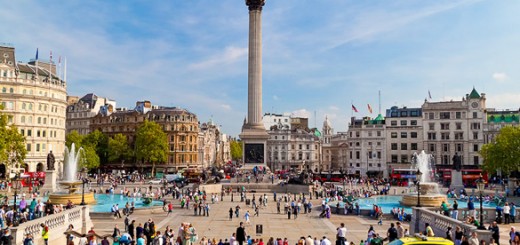Королевская семья Великобритании
Objectives:
to extend students’ knowledge about the British monarchy;
to develop students’ skills in listening and speaking;
to expand students’ vocabulary.
PROCEDURE
- WARMING-UP
T: Are you interested in politics? Can we state it’s an inseparable part of everyday life? We’ll start with British political system. What are its peculiarities? What’s the most interesting institution? (British monarchy) Today we’ll devote our lesson to this institution.
- LISTENING
- While-listening task
T: Listen to the text and answer the questions:
Why is the British monarchy enormously popular?
Who actually governs the country?
What are the powers of the government?
Why are the people so interested in the details of the Queen’s life?
Have the kings been always popular?
What did you get to know about this Queen?
Can the country make a profit of her visits?
How popular is the Queen?
T: Don’t forget to use the following conversational formulas:
If I remember
As far as I can judge
If I am not mistaken
As I see it
THE BASIC FACTS
The British monarchy is an enormously popular institution. This is largely due to the fact that it does not actually govern. Government is the task of ministers, who are responsible to the House of Commons, which is elected by the people. Although the Sovereign has very wide theoretical powers, they are seldom, if ever, used. The Queen is really a figurehead representing the country, but she has the power to prevent any politician establishing a dictatorship. The Queen and her family are a symbol that people can identify with. The British public is obsessed with the details of royal family life, and when people feel that the Queen has problems with her children, or her sister, they see her as a ‘real person’ with the same worries and anxieties as themselves.
The monarchy has not always been popular. During the late 19″1 century, there was a growing republican sentiment, but the personality and family image of the Queen, her father and grandfather have removed that feeling. The Queen is probably the wealthiest woman in the world, most of the money coming from family investments rather than the state. Her state salary (the Civil List) pays for her servants and transport. In recent years the Queen has become a roving ambassador for Britain, and if we calculate the increase in trade after a royal visit abroad, the nation probably makes a profit from her activities, and that does not take into account the income from tourism in Britain generated by the monarchy and great state events such as royal weddings.
Just how popular is she? In the late 1970s, a newspaper conducted an opinion poll. People were asked, “If there were no monarchy, which would you vote for as President?” More than 80% chose the Queen. Prince Charles came second, closely followed by his father, Prince Philip. The Prime Minister of the day was fourth — with 2% of die votes.
- Post-listening tasks
- a) Give the summary of the information you’ve heard.
- b) Imagine you are he representatives of the British society. Express your own ideas about the institution of monarchy in your country.
III. SPEAKING
T: As far as we have already heard the Royal family plays a very important role in the life of the country. Using the family tree speak about its members (Students are given handouts with the family tree other Royal family.
T: Here you are offered some interesting facts about the Queen. Using the information, speak about her likes/dislikes as if you were the members of her family, friends etc.
Ten things the Queen could do by using the royal prerogative:
Dismiss the Government;
Declare war;
Disband the Army;
Sell all the ships in the Navy;
Dismiss the Civil Service;
Give territory away to a foreign power;
Make everyone a peer;
Declare a State of Emergency;
Pardon all offenders;
Create universities in every parish in the United Kingdom.
Things the Queen takes on journeys:
Her feather pillows;
Her hot water bottle;
Her favorite China tea;
Barley sugar;
Cameras;
6) Her monogrammed
electric kettle;
7) Her toilet soap;
Jeweler associated with the countries she is visiting;
Mourning clothes and black-edged writing paper in case of bereavements.
The Queen’s particular likes:
1) Horse racing (‘Were it not for my Archbishop of Canterbury, 1 should be off in my plane to Long champs every Sunday);
Scottish country dancing;
Jigsaw puzzles;
Long-stemmed, deep-pink carnations;
Champagne;
Deerstalking;
7) Quiet evenings at home watching television with her supper on a tray;
Crossword puzzles;
Bright red dresses;
10) The Beatles film “Yellow Submarine”;
11) Sand Ingham.
Dislikes of the Queen:
Ivy;
Snails (“How can you like those beastly things?” she asked Prince Philip);
Tennis, including Wimbledon;
Milk pudding;
The cold;
Grouse;
Any talk of Edward VIII;
Charles Dickens;
Dictating letters;
Laying foundation stones;
Cigar smoke;
Sailing;
Listening to after-dinner speeches.
T: Let’s see how you remember the facts.
(Students are offered the puzzles, based on the information they’ve read.)
The name of a famous French horse racing track.
The name of the Queen’s country house in Norfolk.
The title of the head of the Church.
The name of the sport of hunting deer.
5) A green plant which grows on the outside walls of the houses.
6) A bird which is shot and eaten mainly in Scotland.
7) The name of the Queen’s uncle, who gave up the throne to many a divorced American woman.
The name of a famous 19, h-century British writer.
The name of the first stone in a new building.
Keys: 1) Long champs; 2) Sand Ingham; 3) Archbishop of Canterbury; 4) deerstalking; 5) ivy; 6) grouse; 7) Edward VIII; 8) Charles Dickens; 9) foundation stone.
- READING
- While-reading task
T: It may seem strange but the Queen has a very busy working day. Let’s find out what this day includes. Read and translate the text “The Queen’s working day”.
Glossary
Chamberlain — officer managing a royal household proceeding — accounts
Lady-in-waiting — lady attending a queen or princess centenary — occurring every hundred years
THE QUEEN’S WORKING DAY
When the Queen is in residence at Buckingham Palace, every day is a working day, both for her and for the Duke of Edinburgh. They meet for a quick breakfast at half-past eight when they will discuss each other’s daily programmed but, unless they have joint engagements, they frequently do not see each other again until late evening. By 9.30 a.m. Her Majesty is at her desk ready to start the day’s routine.
A digest of the day’s newspapers will have been prepared by the Press Secretary with items of particular interest marked or cut out. When Parliament is sitting, a report on the previous day’s proceedings will have been delivered by the Vice-Chamberlain of the Household.
One of her Majesty’s three private secretaries will then arrive with the morning post. Letters from children are usually passed to one of the ladies-in-waiting for a reply, and certain official correspondence may be sent on to the appropriate government department for action. But there are always plenty that require her own attention. Another frequent duty of the Queen is the sending of around 2,000 centenary telemessages each year to people who reach their hundredth birthday. Throughout the working day a number of visitors will call ranging from incoming to ingoing diplomats to Her Majesty’s dressmakers, who may arrive to discuss the wardrobe for a forthcoming overseas tour.
Once a month a meeting of the Privy Council is held in order that the Royal Assert is given to various items of government legislation.
At the end of the morning Her Majesty usually lunches alone and then in the afternoon she will often have an engagement in the London area. On her return she may hold important domestic discussions with the Master of the Household, for Her Majesty is not only the Sovereign but also mistress of the house — the largest house in the country.
Towards the end of the day there is always another pile of official papers, government documents and reports to be read, initiated or acted upon. Even when the members of the Royal Households have all gone home for the night, there is often one light burning: it is the Queen’s, for whom the business of a constitutional monarchy never ends.
- Post-reading task
T: Find English equivalents in the text and use them in your own sentences:
Спільні справи; особливий інтерес; звіти за минулий день; вимагати чогось; столітній ювілей; той, що наближається; вести дискусії.
(Joint engagements; particular interest; previous day’s proceedings; require something; centenary; forthcoming; hold discussions.)
- WRITING
T: Write a schedule of the Queen’s working day using the information from the text.
- HOME ASSIGNMENT
T: Write a short essay “My idea of the monarchy”.



